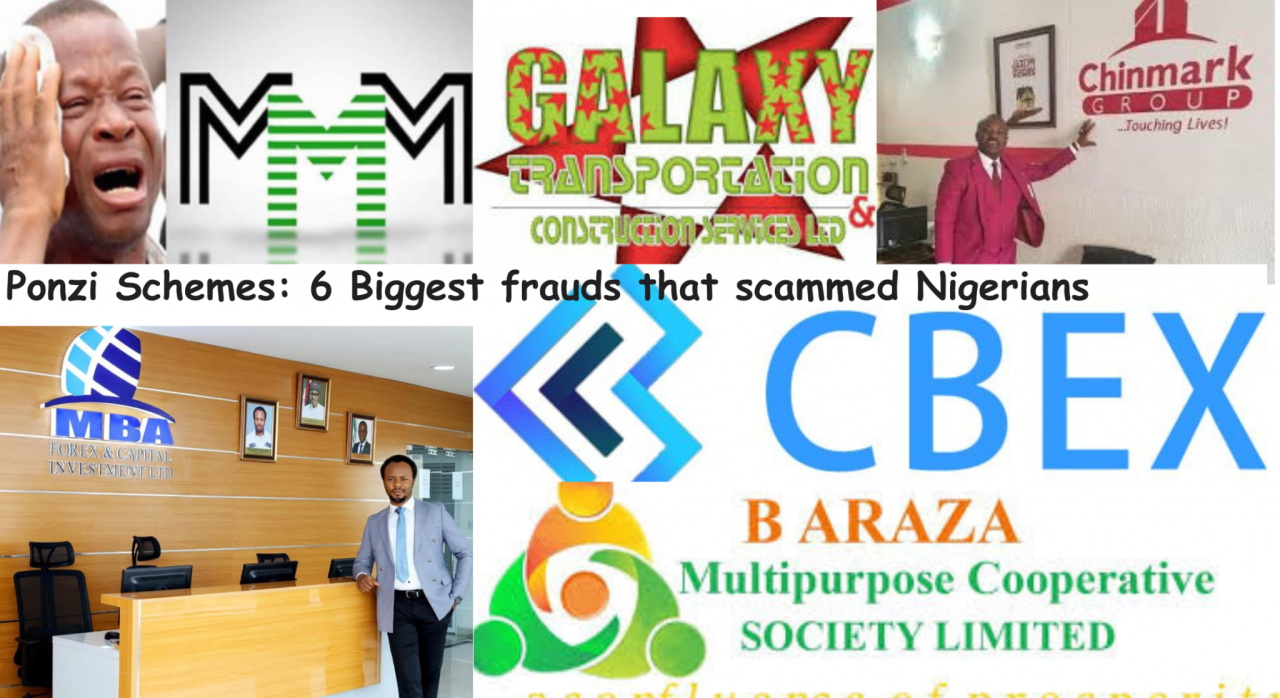
1. MMM Nigeria -2016
2. Galaxy Transportation and Construction Services -2019
3. MBA Forex & Capital Investment Ltd – 2020
4. Baraza Multipurpose Cooperative – 2021
5. Chinmark Group – 2022
With polished branding, massive influencer support and a loss of over 10 billion naira, Chinmark built a façade of trust. It promised up to 30% annual returns on investments in hospitality and logistics. The crash in 2022 left over 4500 people, including students, pastors, and civil servants, stranded. Its founder, Mark Chinedu, denied wrongdoing, but no one got their money back.
6. CBEX Global/CBBE – 2024

Why Ponzi Schemes thrive and what the government is doing
How to Spot a Ponzi Scheme
Here’s how to tell if an “investment opportunity” is likely a scam:
Unrealistic returns: Anything promising more than 10–15% monthly is almost always a red flag.
No clear business model: If they can’t clearly explain how money is made, beware.
Aggressive referrals: You’re paid more for bringing others than for actual returns.
No SEC registration: Always check the SEC website to verify legitimacy.
No risk disclosure: Every real investment carries some risk. If they say “zero risk,” run.
